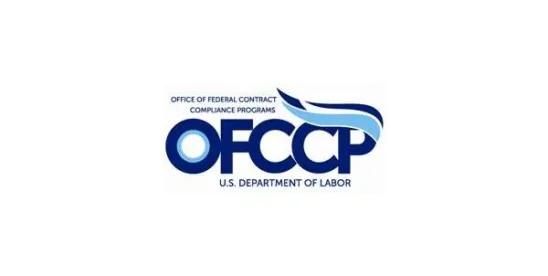On July 1, 2025, the Office of Federal Contract Compliance Programs (“OFCCP”) released three notices of proposed rulemaking that, if adopted, will change federal contractors’ affirmative action obligations.
- First, the agency proposes to rescind all regulations that give effect to Executive Order 11246 (“EO 11246”).
- Second, OFCCP seeks to amend the rules implementing government contractor requirements under Section 503 of the Rehabilitation Act (“Section 503”) in two fundamental respects: eliminating the obligation to invite applicants and employees to self-identify as individuals with disabilities and abandoning the utilization goal requirements for individuals with disabilities.
- Finally, OFCCP proposes modest, largely technical revisions to its Veterans’ Employment and Readjustment Assistance Act (“VEVRAA”) regulations governing government contractors to remove cross-references to Executive Order 11246.
With respect to EO 11246 regulations (specifically, 41 C.F.R. §§ 60-1, 60-2, 60-3, 60-4, 60-20, 60-40, and 60-50 ), OFCCP explains that “it must rescind” those regulations in light of Executive Order 14173, “Ending Illegal Discrimination and Restoring Merit-Based Opportunity.” It also states, as “a further separate and independent reason for rescission,” DOL’s “concerns that the affirmative action regulations are vulnerable to legal challenge as unlawful,” citing the 2023 U.S. Supreme Court decision in Students for Fair Admissions, and contends the action is further justified because it will “improve the efficiency of the Federal contracting process and decrease employer burden,” “alleviat[e] unnecessary regulatory burdens and remov[e] regulatory requirements that could have created barriers to entry for contractors who are new market participants,” and “provide regulatory certainty to Federal contractors and other stakeholders by aligning the regulations with the most recent executive orders.” With respect to reducing employer burden, OFCCP estimates the requirements it seeks to rescind imposed “an annual time burden of 9,875,221 hours and $996,373,735 in annual monetary costs.”
In its notice, the OFCCP criticizes numerous aspects of the EO 11246 requirements imposed on federal contractors, including the “premise” underlying the regulations that “the mere existence of statistical disparities as evidence of underutilization of women and minorities is based on the fundamentally flawed assumption that each and every federal contractor’s workforce may harbor discrimination if it does not mirror the available labor pool for women or minorities.” Further, the agency raised concerns that even though the regulations prohibited discrimination, they “may have induced and incentivized [contractors] to consider characteristics like race and sex when making such decisions to try to avoid, if scheduled for a compliance evaluation, becoming entangled in a costly audit process or to try to avoid DOL enforcement actions or conciliation procedures….”
Although the Uniform Guidelines on Employee Selection Procedures (“UGESP”) in 41 C.F.R. § 60-3 are proposed to be rescinded, the agency notes that its action “does not impact other agencies’ interpretation and application of UGESP.”
The proposed amendments to Section 503’s implementing regulations are more narrowly tailored but are still consequential.
Two in particular stand out. First, OFCCP proposes “to rescind the regulations … which require contractors to invite applicants and employees to self-identify their disability status.” OFCCP contends that self-identification invitation requirements are “inconsistent with” the Americans with Disabilities Act (“ADA”), as the ADA prohibits employers from, “prior to an offer of employment, mak[ing] any disability-related inquiries, even if that inquiry is related to the job.… And even after an employee starts a job, an employer may make disability-related inquiries only if such inquiries are job-related and consistent with business necessity.”
Second, OFCCP seeks to eliminate the “utilization goal requirements,” which currently require “contractors to apply a seven percent utilization goal for employment of qualified individuals with disabilities to each of their job groups, or to their entire workforce if the contractor has 100 or fewer employees.” The agency contends that “[w]hile the Section 503 regulations state that the use of quotas is prohibited, contractors may, in practice, be induced to us[e] quotas to meet the utilization goal.” Further, OFCCP’s proposal to discontinue self-identification efforts (discussed above) and its view that such efforts violate the ADA mean that contractors will lack the data necessary to conduct utilization goal analyses.
The OFCCP proposes other, generally technical, amendments to its Section 503 regulations; however, it expressly retains the outreach, recruitment, and other disability-related obligations that do not hinge on disability data collection.
The contemplated revisions to OFCCP’s VEVRAA regulations are comparatively minor. The proposal mainly excises references to the EO 11246 regulations’ administrative enforcement proceeding procedures from OFCCP’s VEVRAA regulations and adds the administrative enforcement proceeding procedures directly into the VEVRAA regulations. All substantive requirements—including the establishment of an annual hiring benchmark for protected veterans, the implementation of outreach and recruitment efforts, and the annual assessment of those efforts’ effectiveness—would remain intact.
Interested parties have until September 2, 2025, to submit written comments on any or all of the three proposals.




 />i
/>i

